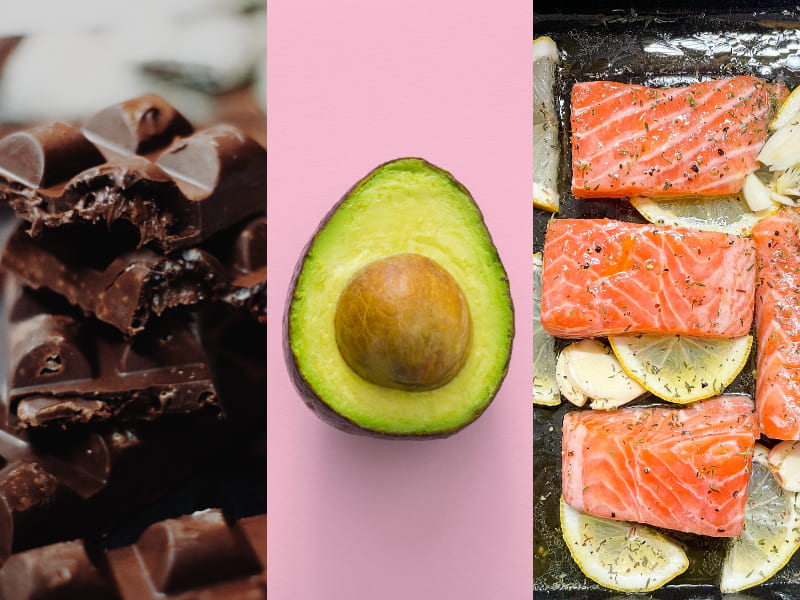High cholesterol is a significant risk factor for heart diseases, namely stroke and cardiovascular ailments. Beyond that, it also contributes to diabetes and high blood pressure. There are many ways to keep one’s cholesterol in check; one of which is by adopting a healthy and balanced diet that includes specific foods to lower cholesterol.
Cholesterol Explained: What Is It And What Happens When There’s Too Much Of It?
Cholesterol is a necessary cell component that helps with the formation of cell membranes, certain hormones, and vitamin D. While it’s created naturally by the liver, it isn’t water-soluble and requires lipoprotein—a particle made of fats and proteins—to transfer cholesterol through the bloodstream.
There are two types of lipoproteins: low-density lipoprotein (LDL, also known as “bad cholesterol”) and high-density lipoprotein (HDL). When bloodstreams contain too much LDL, it leads to high cholesterol and can clog arteries, increasing the risk of heart attacks or strokes.
Foods To Lower Cholesterol: Include Them Into Your Meals To Maintain Good Health
Fruits
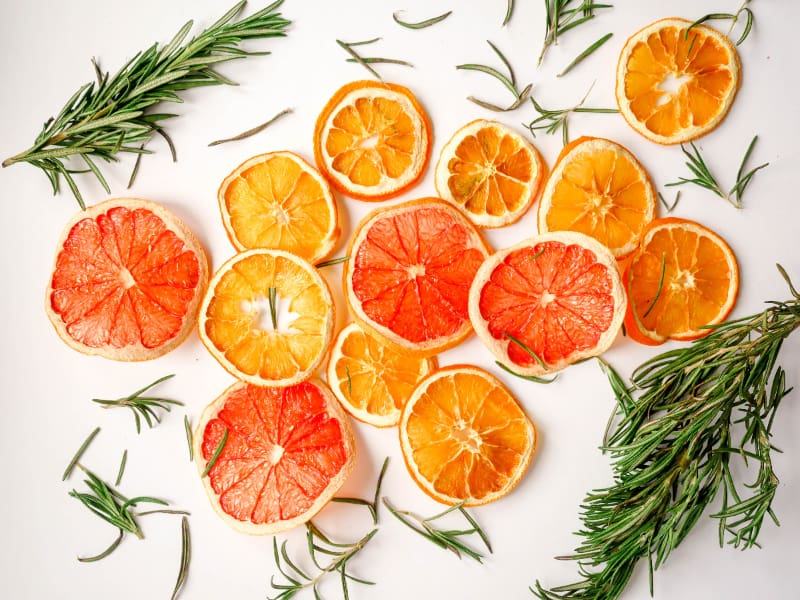
Fruits are known to have plenty of health benefits, and lowering cholesterol is certainly a significant one. Apples, grapes, strawberries as well as citrus fruits like oranges and grapefruits contain a soluble fibre called pectin, which is known to reduce cholesterol levels by up to 10%.
Furthermore, the antioxidants and anti-inflammatory properties found in fruits also act as a natural deterrent against heart diseases.
Soy
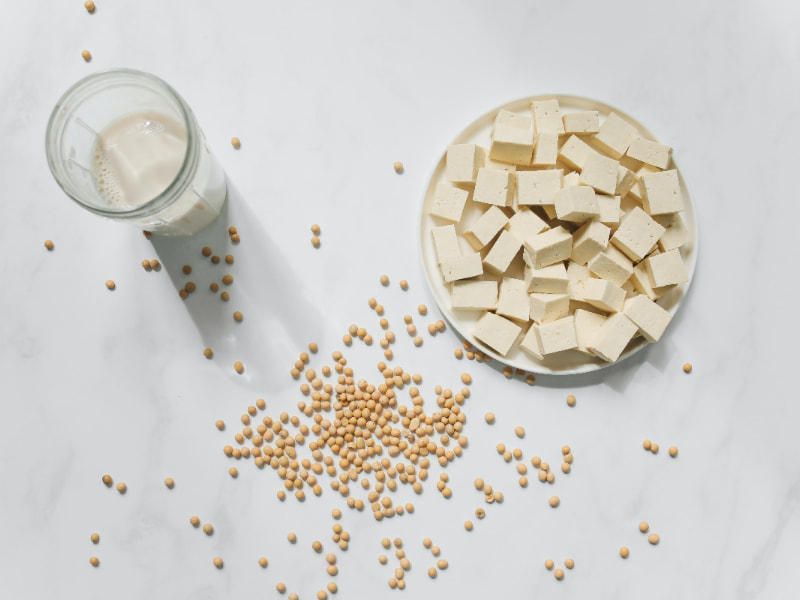
Soy-based products like tofu and the umami-packed miso are not only tasty, they’re also foods to lower cholesterol. According to research, consistently consuming soy milk and other similar products can reduce LDL by five to six percent. Apart from cholesterol-lowering benefits, soybeans are a great source of protein, fibre, and a wide array of vitamins.
Nuts
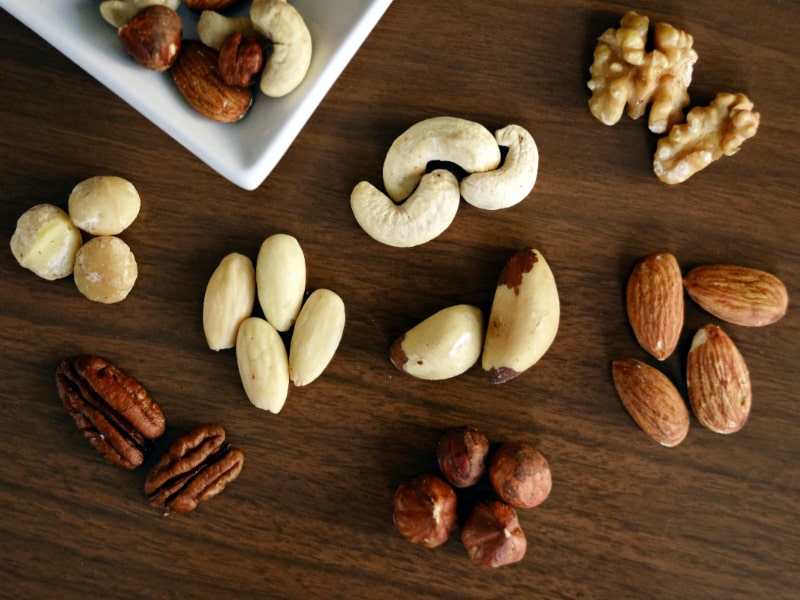
Much has been said about the nutritional benefits of consuming nuts, but did you know that they’re also foods to lower cholesterol? Walnuts, almonds, cashews, and pistachios hold heart-healthy fatty acids and compounds, which can block LDL cholesterol from being absorbed into your gut.
What’s more, they’re full of magnesium, potassium, and other plant nutrients that contribute to your overall wellness. They’re also pretty filling as snacks, meaning you’ll be less likely to munch on other things!
Fatty Fish
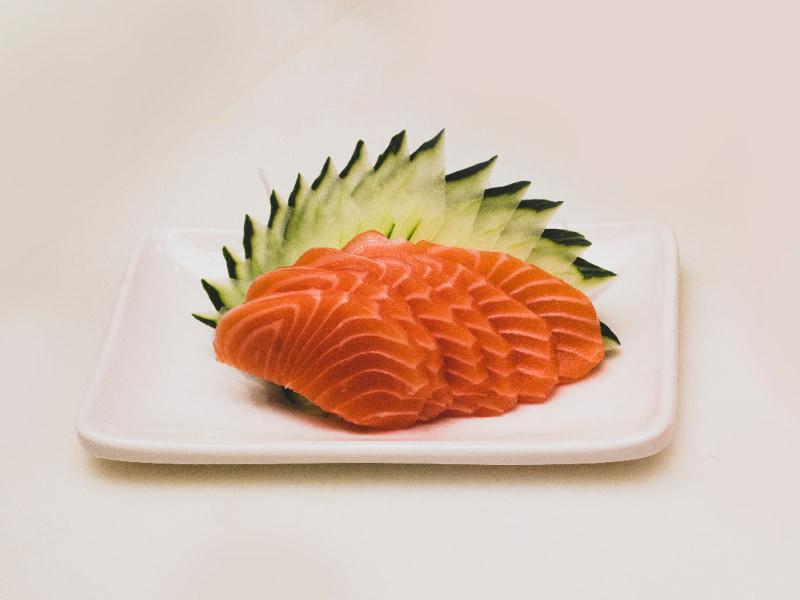
Salmon, mackerel, and tuna are examples of fatty fishes. The “fat” takes form in Omega-3 fatty oils that lower LDL cholesterol while increasing good cholesterols. They’re proven to reduce the risk of inflammation, arthritis, and possibly cancer.
That said, you’ll only reap the nutritional value with oil-free preparation methods. This means broiling, air frying, roasting, or poaching.
Legumes
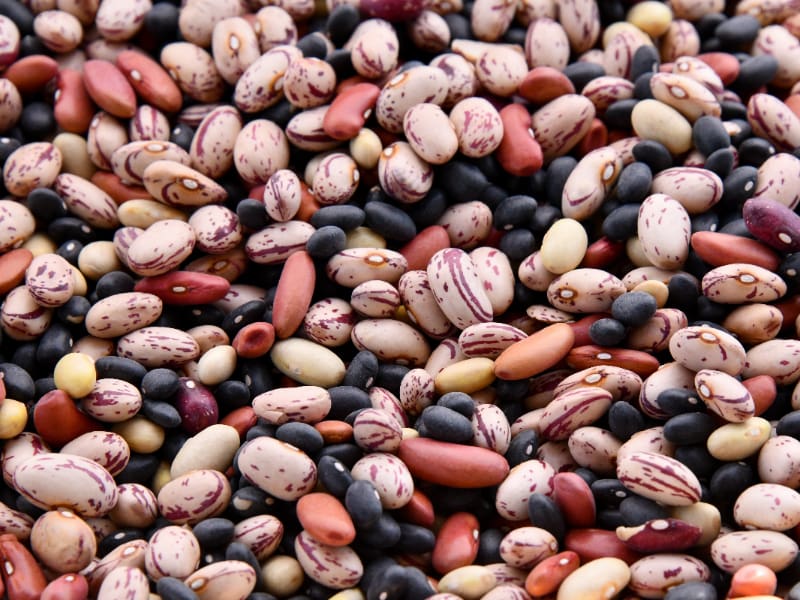
Edamame, lentils, and peas fall under the legumes family, a class of vegetables with seeds or pods inside. Commonly eaten throughout the world, legumes are essential foods to lower cholesterol. Packed full of minerals and proteins, it’s shown that consuming about 100 grams of legumes daily could lower LDL cholesterol as opposed to not having any.
Avocado
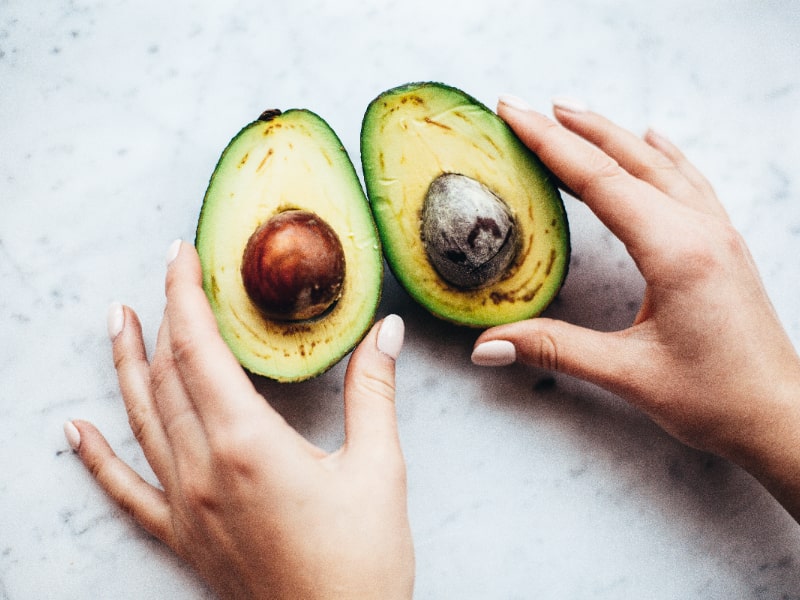
Creamy, rich, and oh-so-delicious, the avocado fruit makes for a satisfying breakfast over toast. Its decadent taste comes with a slew of health benefits, which include lowering cholesterol. A research paper published by the American Heart Association shows that consuming one avocado per day can lower LDL cholesterol.
Beyond that, avocados are home to unsaturated fats. Also regarded as beneficial fats, they help to stabilise heart rhythms and ease inflammation.
Related: Healthy Breakfast Ideas & Swaps To Lose The Post-Holiday Weight
Oats & Barley
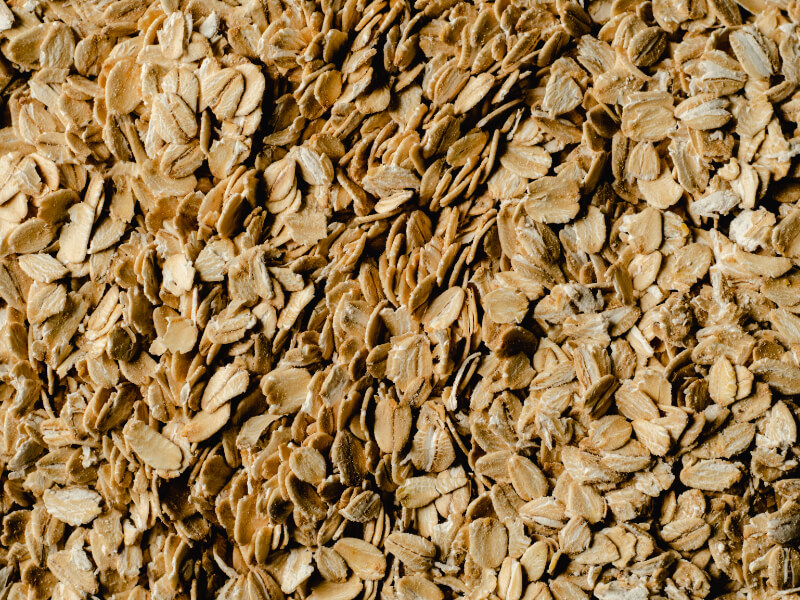
Both of the cereal grain family, oats and barley boast a type of soluble fibre called beta-glucan that can help to lower blood cholesterol levels. Moreover, they’re also rich in vitamins and minerals while reducing blood sugar, making them suitable for people with diabetes.
There are many ways to integrate oats and barley into your diet. The most popular is oatmeal, a delicious concoction of boiled oats and barley topped with fruits, milk, and nuts.
Dark Leafy Vegetables
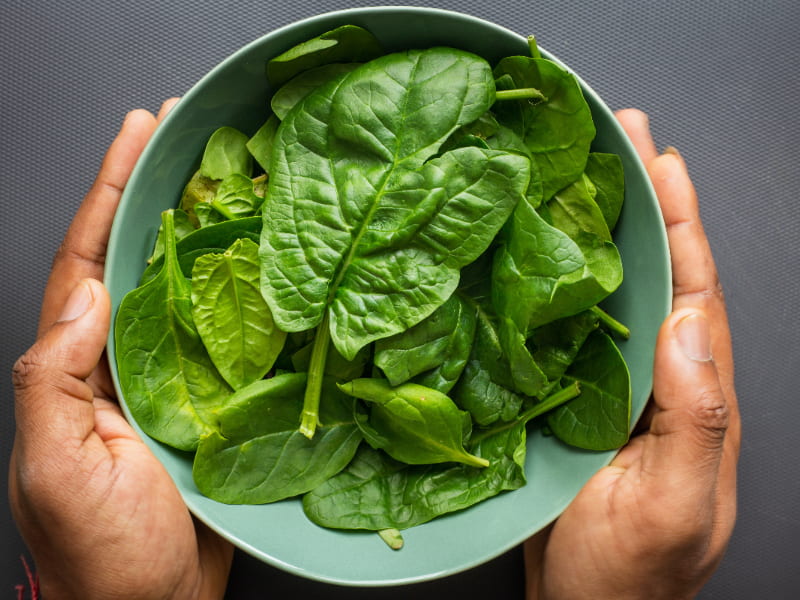
Veggies are good for you—especially the dark leafy ones. Doubling as foods to lower cholesterol, leafy greens such as spinach and kale contain carotenoids that are known to keep LDL cholesterols in check. Carotenoids are pigments in plants that give them colour, but beyond that, they act as antioxidants and decrease the risk of heart diseases.
More reasons to believe our parents for asking us to eat more greens!
Extra Virgin Olive Oil
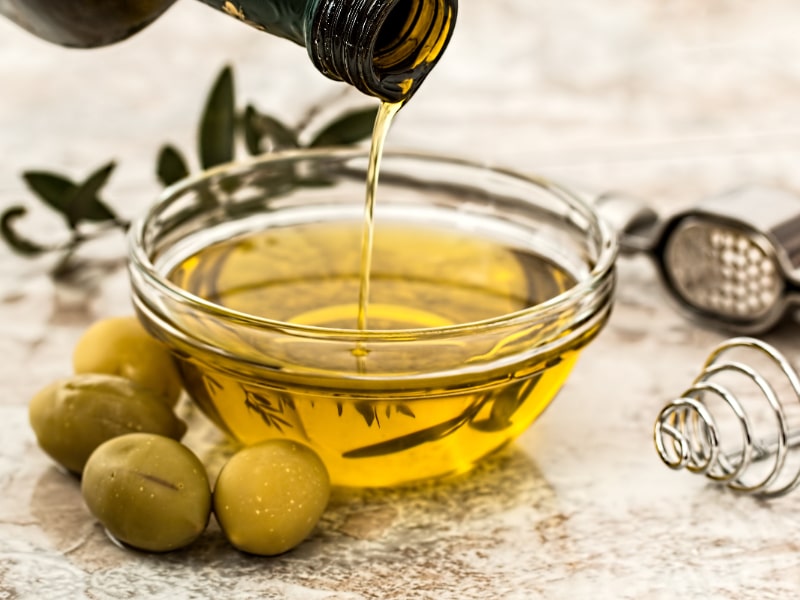
The cholesterol-lowering benefits of olive oil are more potent in the extra virgin variant. There’s less oil, resulting in more heart-healthy antioxidants, one of which is the anti-inflammatory oleocanthal that protects LDL cholesterol from oxidation.
Apart from beneficial antioxidants, extra virgin olive oil also holds a substantial amount of vitamin E and vitamin K.
Dark Chocolate
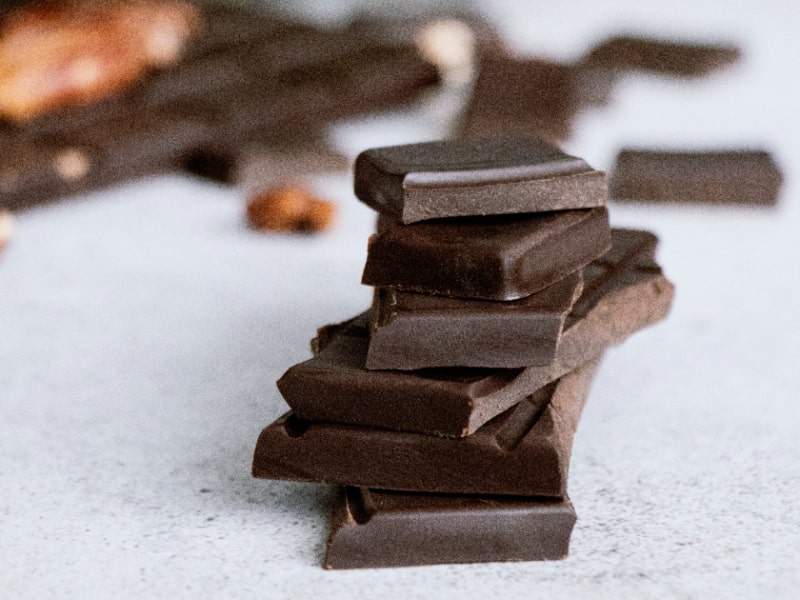
Not all types of chocolate; only dark chocolate falls under the umbrella of foods to lower cholesterol. Even so, there are some caveats to be mindful of. The chocolate bar must contain between 70 and 80 percent of cocoa, with little to no sugar added. Basically, the purer the chocolate, the better. The same rules apply to cocoa powdered drinks.
How does chocolate actually control cholesterol levels? It’s through flavanol, a type of antioxidant found in cocoa. Researchers have found that flavanol could lower LDL cholesterol as well as risks of inflammation.
Eat These Foods To Lower Cholesterol So You Can Stay Strong And Healthy
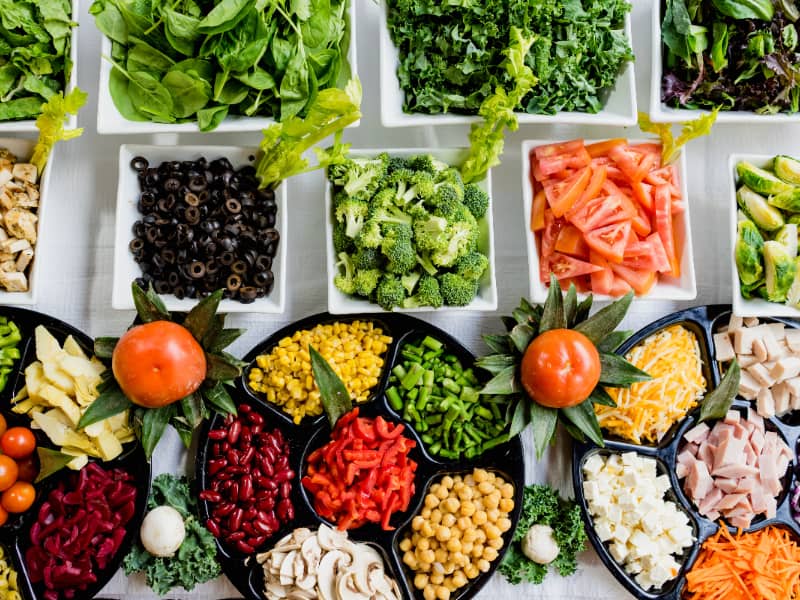
High cholesterol creeps in slowly and can lead to detrimental consequences if not taken care of. While a conscious approach to your diet is important, it doesn’t stop there. Working out and practising mindfulness all play a part in overall wellness too. Remember: healthy body, healthy mind!

